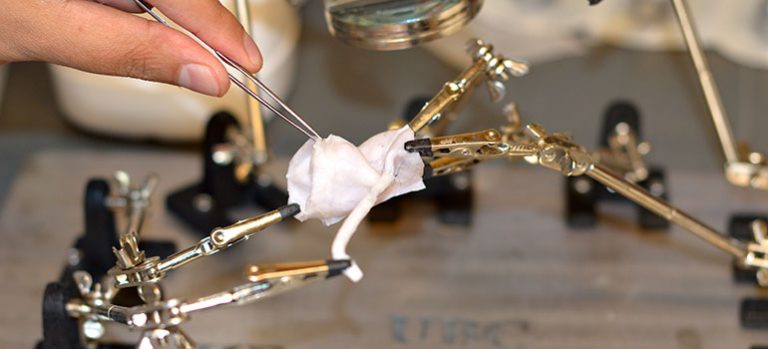
University of British Columbia scientists developed synthetic heart valves
On Sept. 1, 2016, the University of British Columbia (UBC) announced that researchers at UBC’s Okanagan campus had developed synthetic heart valves, arteries and veins made of polyvinyl alcohol hydrogel, that resembles human tissue.
The polyvinyl ’tissue’ made it possible for surgeons and medical residents to practice bypass surgery techniques using the synthetic material as opposed to the current method of using arteries and veins from dead pigs or human cadavers.
The invention, only used for teaching purposes, is being used by a number of surgeons and medical residents at the Kelowna General Hospital (KGH) in B.C.’s interior. The synthetic heart valves, veins and arteries are currently being used to practise bypass surgery on actual hearts harvested from pigs.
The two inventors are now working towards creating a synthetic heart with the new material, which could then be used to largely eliminate the need for any animal or human cadaver tissues and organs when practising heart surgery.
The research was published in the journal Cardiovascular Engineering and Technology.
Tags:
Source: University of British Columbia
Credit: Photo: Synthetic heart artery invented at UBC’s Okanagan campus, Courtesy: University of British Columbia.
